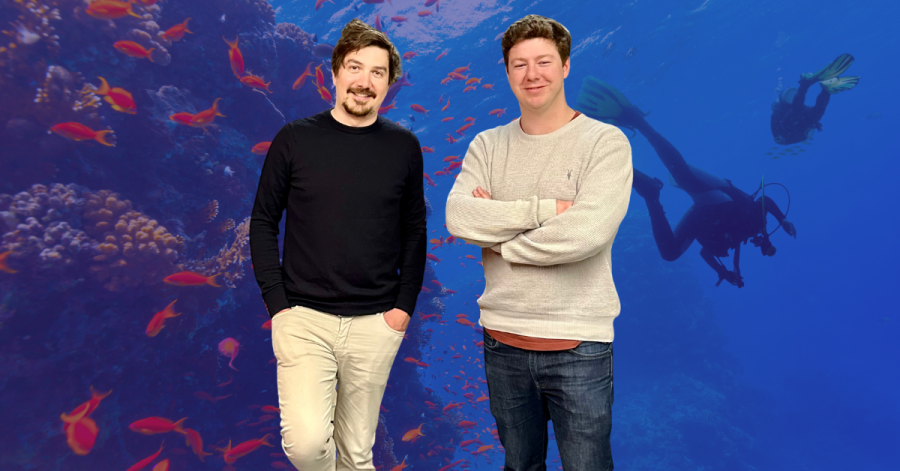“My favorite thing about traveling is sitting on a plane for hours and spending the rest of my holiday in my hotel room”, said no one ever. Indeed, the essence of travel lies not in the journey itself, but in the experiences that await at the destination. It’s about the thrill of exploring a new city, the joy of tasting exotic cuisine, the serenity of a secluded beach, or the adrenaline rush from a skydiving adventure.
This evolution from travel to experiential journeys is subtly yet profoundly changing the travel industry. It’s a trend that’s altering our approach to travel, encouraging us to become explorers rather than just tourists, and transforming our vacations into a collection of memorable experiences.
As Fran Kauzlarić, Croatian co-founder of travel tech startup Turneo, puts it, “People travel to experience amazing things. And the challenge sometimes is how and where to find those amazing things to experience.”
The rise of the experience economy in travel
The experience economy, a term coined by Pine and Gilmore in 1998, refers to an economy where businesses create memorable events for their customers, and the memory itself becomes the product.
In the context of the travel industry, the shift from traditional travel to experience-based travel has been mostly accelerated by the COVID-19 pandemic. Of course, the role of technology in facilitating this shift is undeniable.
However, there exists a gap between traditional travel experiences and the demands of the experience economy. Fran Kauzlarić, for example, is one of those people that has traveled to 70 plus countries across five continents. And what he’s noticed is that 80% of in-destination activities pre-COVID were booked offline, usually at the destination itself. The pandemic changed this – what we are seeing now is a huge spike in booking experiences ahead of departure, with 99% more travelers (compared to pre-COVID) booking a tour or experience one week before departure.
There’s a significant advantage in that shift because as most avid travelers know if you don’t book something online in advance you end up not doing that activity at all. So the need for a solution that caters to these changing expectations is evident.
This is where travel tech innovations board the plane. Even global companies are recognizing the potential of the experience economy and are making strategic moves to enter this burgeoning sector. For instance, Uber, a company that revolutionized the ride-hailing industry, is now venturing into the realm of experiences with their product Uber Explore that allows customers to browse and book experiences like dinner reservations, live events, etc. Other companies, such as Revolut, are also expanding their offerings to include travel-related services, indicating that the experience economy presents opportunities for both established companies and startups alike.
Personalizing travel experiences
It’s all about personalization really and travel tech startups in the CEE region are already building experience commerce platforms tо address just that.
Turneo, co-founded by Fran Kauzlarić and Matija Marijan, offers a “Shopify for experiences” platform and is working to build the infrastructure that facilitates the B2B experience economy. The company enables hospitality providers to create their own branded experience stores and offer their guests the ability to browse and book local experiences tailored to their preferences.
The co-founders, with backgrounds at Brussels Airport Company (Fran) and Expedia’s B2B travel tech division (Matija), identified a gap in the market for B2B experience distribution. This insight, coupled with their travel tech experience, led to the creation of Turneo.
The startup has since secured partnerships with major Croatian hotel chains like Maistra Hospitality Group and Liburnia Hotels & Villas, Czech boutique hotels like Hotel Fitzgerald, as well as tropical resorts like The Nest in Zanzibar. Their offers span from VIP dinners atop palm trees to windsurfing lessons. Additionally, this year Turneo raised an €800k round co-led by Ascension Ventures and Underline Ventures and joined by Silicon Gardens with a number of angel investors.
The role of AI in the experience economy
When it comes to travel tech, AI seems to be becoming increasingly significant as a tool to deliver personalized experiences to customers.
For instance, if a couple is planning a romantic getaway to Rome, an AI-power tool can suggest activities suitable for them, eliminating the need to sift through numerous family-friendly or adult-only activities that are not relevant to them.
Turneо has created a chatbot named Marco, which is powered by AI and they plan to develop this product further into the itineraries category. Marco can be integrated into any hotel chatbot and can answer questions like “Hey, we’re a foodie couple staying in Zagreb for the weekend. What are some of the places within a 2 hours drive from Zagreb that we could go to?” The chatbot then suggests the most relevant places
The use of AI in this manner not only enhances the customer experience but also reduces distribution costs. In the travel industry, knowing when and what to offer to a customer can be expensive. AI can help tailor the right product, at the right time, at the right price, making guests happier and lowering the cost of distribution.
However, it’s important to note that while AI can bring many benefits, it’s not a magic bullet. It’s a tool that needs to be used thoughtfully and strategically. As Fran from Turneo points out, it’s not about using AI because it’s cool or because everyone else is doing it. It’s about using AI to achieve a specific goal – in this case, to help people experience amazing things when they travel.
The future of the experience economy
The future trends in the experience economy point towards further personalization and a focus on local experiences. Fran Kauzlarić sees a “retro trend” emerging, with travelers wanting to explore local areas and not just the major sites. He also sees opportunities for travel tech companies in the CEE region to cater to this demand.
“CEE shouldn’t be thinking about CEE. Think global, have a global perspective, have a global ambition, and there’s nothing stopping you from launching your product. In the US, in Australia, in South America, travel tech is a global market. You’ve got your originating markets and your destination markets, and you’ve got people going from everywhere to everywhere”, Fran says.
It’s pretty clear that the travel tech sector is poised for a wave of innovation, with a host of B2B products set to hit the market. Turneo is one of the players in this space, but it’s far from alone. Companies like Duffel and Impala are already making strides in flight and hotel distribution. Duffel is a software platform that uses APIs to make selling travel services more accessible and Impala simplifies the process of booking hotel rooms by directly connecting hotels with room sellers, thereby eliminating the need for intermediaries.
This surge of innovation is not just about competition; it’s about collectively pushing the boundaries of what’s possible in the travel tech sector. As these companies continue to innovate and leverage AI, the future of travel looks set to be more personalized, more efficient, and more exciting than ever before.








